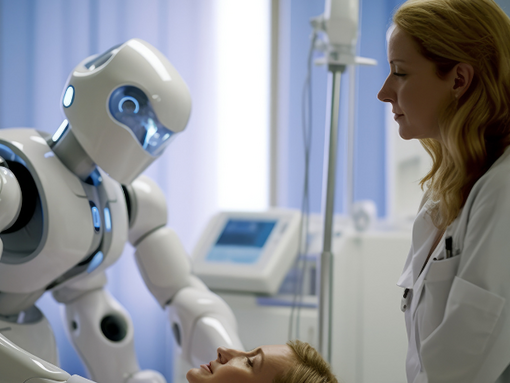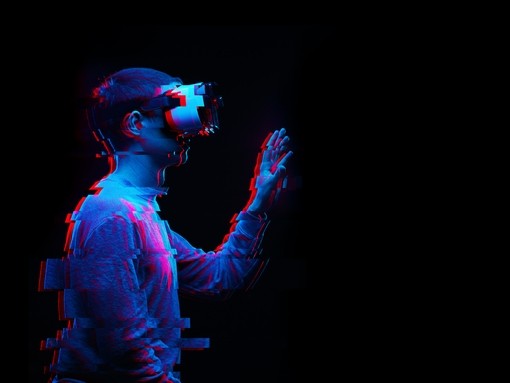
The ethical dilemma of facial recognition technology
In late May 2021 it was reported by the BBC that a camera system that uses artificial intelligence and facial recognition technology intended to reveal states of emotion in people has been tested on Uyghurs in Xinjiang, China.

A software engineer claimed that the system had been installed at several police stations in the region, which is already is believed to be one of the most highly surveilled areas in the world.
The software engineer, who was reporting to the BBC under the strictest condition of anonymity, claimed that the technology was being forcefully tested on the mostly Muslim ethnic minority of Uyghurs in Northwest China.China has already been internationally condemned for its heavy surveillance and mass detentions of Uyghurs in what the government claims are ‘re-education centres aimed at quelling a terrorist movement’.
This reported testing raises concerns about the potential human rights violations of AI and facial recognition, with the engineer providing evidence that “theAI system is trained to detect and analyse even minute changes in facial expressions and skin pores.”
There are plenty of ways that facial recognition technology could benefit our every day lives. From speeding up queues for services to quickly identifying criminals through surveillance footage, the applications and varied and steadily growing. But such uses are raising concerns among the human rights community as privacy violations that have the potential to go too far.
So, is facial recognition technology ethically sound? We look at the pros and cons:
The pros of facial recognition technology
Finding the missing or wanted
The UK alone has over 5 million CCTV cameras in operation, and the USA has around 15 cameras for every 100 people. This pales into insignificance when you consider that China is estimated to have around 200 million units, the most of any nation in the world. These cameras record a staggering amount of data every second, and facial recognition artificial intelligence algorithms are a sure-fire way to allow this footage to be rapidly sifted through and wanted people or criminals to be tracked. This is particularly useful in the case of missing people, when the window of opportunity to track them can diminish rapidly in the first few hours.
Medicine
Facial recognition technology is used regularly in medicine to dispense medication based on biometric scanning. Further expansions in the technology allows for diagnostic capabilities – such as measuring for pain levels by identifying facial expressions. This is the crux of the argument surrounding ethics in facial recognition. The potential applications in medicine are the same technology that is allegedly being used in a controversial way in China.
Fast-tracking
In a queue for a service? Want to sign in to a building quickly and efficiently. Facial recognition technology allows simple actions to be fast-tracked.
The average person is more accustomed to facial recognition technology being used in this way than they probably realise. Both Apple and Facebook utilise facial recognition software with their imaging tools to allow image tagging and indexing, as well as the iPhone unlock system that is adept at recognising the difference between a picture of a person or their actual face.
The cons of facial recognition technology
An invasion of privacy?
With cameras seemingly watching every square inch of major towns and cities, the privacy concerns increase when facial recognition technology is added into the mix. If the technology is effective enough to identify specific people in a crowd, it would be possible to track their every move. Many see this as an invasion of privacy that often outweighs the potential upsides of the technology.
Do you – or can you - give your consent?
Facial recognition algorithms work by scanning huge data sets of imagery captured under different conditions and at various angles to ensure the technology learns to read the images correctly and make matches. The issues arise during the data collection phase.
A number of universities and companies in the USA have been removing online data sets, mostly taken from the internet, containing millions of photographs of faces used to improve the facial recognition algorithms, often without explicit permission.Researchers often use public Flickr imagesthat were uploaded under copyright licences that allow liberal reuse. Legally, it is unclear whether scientists in Europe can collect photos of individuals’ faces for biometric research without their consent. The General Data Protection Regulation (GDPR) does not provide an obvious legal basis for researchers to do this, but there has been no official guidance on how to interpret the GDPR on this specific point.
The questions remains – even if you directly benefit from the research done for facial recognition technology, are you comfortable with imagery of yourself being used freely during that research phase?
Science journal Nature wrote in November 2020:
“[We] conducted a survey to better understand researchers’ views on the ethics of facial-recognition technology and research. Many respondents said that they wanted conferences to introduce mandatory ethics reviews for biometrics studies. This is starting to happen. Next month’s NeurIPS (Neural Information Processing Systems) conference will, for the first time, require that scientists address certain ethical concerns and potential negative outcomes of their work.”
As technology progresses at ever-increasing rates, it’s important that we embrace it in an ethical and safe way, and that people are always fully aware of its use. The technology has the capacity to be one of the biggest innovations in computing since the advent of the internet, but in much the same way, policing it and understanding the ethics of its applications is crucial.
It’s clear that the right steps are being taken though, and the leading lights in the industry are clearly pointing towards mandatory ethics reviews. That’s probably why Ethical Technology Advisor is a future tech job title…
The Morson Technology team are experts in recruiting specialist IT and technology talent for your business. Whether you’re a budding start-up or an experienced business, get in touch with the team to talk about your IT and technology needs.
















